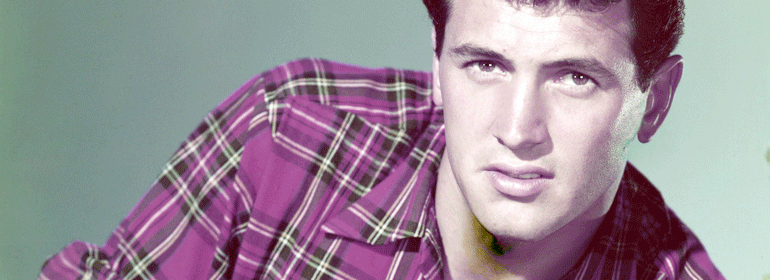When gay guys say they’re ‘straight acting’ on Grindr or Gaydar profiles, they’re not only doing a grave disservice to themselves, they’re letting the whole queer community down, says Rob Buchanan.
I grew up with only straight mates in the same working class estate on the north side of Dublin that I live in now. I knew no ‘out’ gay people until my late teens. Like most gangs of teenage lads, my mates and I all emulated each other, so when I eventually came out those who expected it versus those who were surprised were roughly fifty-fifty.
All I wanted to do was belong. I still want to fit in. I wore the clothes, I watched the matches; I shagged the girls. I played rugby and did boxing. And yet it was never any attempt at camouflage. I certainly wasn’t out to win the Oscar for Best Heterosexual in a motion picture. I was not ‘acting’ straight back then, any more than I am acting it now.
‘Straight acting’ is a label we use for a queer who doesn’t act or look, well, queer. It’s used more and more frequently by gay men, particularly on-line and on dating apps. My question is: If passing for straight is a good thing, is being obviously gay a bad thing?
This question is not aimed at gay men whose natural behaviour would be described as masculine. The key to my problem with the whole straight acting thing is the word ‘acting’.
In Panti`s incredible and now world famous Abbey Theatre speech, she talked about the constant self-behavioural monitoring of gay people, which society oversees in order to attempt to maintain the heterosexual ‘norm’. At the very worst we see this in the appalling homophobic pogrom videos, where a stray gesture, or a suspect walk, can be the triggers for a homophobic attack. But what about prohibitive attitudes within our own LGBT community?
Whenever I see the term ‘straight acting’ on Grindr or gay message boards, or worst of all hear it from a mate’s mouth, it makes me cringe. I have to bite my tongue and hope that the person using it doesn’t fully understand what they are implying about themselves and other gays.
If you use the term ‘straight acting’ about yourself, I just want you to take a moment and consider what you are really saying about yourself and your community.
Maybe you should think twice before labeling yourself straight acting, because when you underpin this straight ‘ideal’, you also pass judgment on those who does not or cannot attain it.
Straight people sometimes say to me: “Oh, I wouldn’t have known you were gay,” as I will be delighted by this revelation. Am I supposed to say, “Jaysus, thanks! You mean I could actually pass for one of you?”
Straight people congratulating you for appearing straight is one thing, but it’s very disappointing when gay people do it.
There seem to be three elements to the ‘straight acting’ phenomenon. Firstly there’s the fear of the negative repercussions of being effeminate in a society that negates femininity in men. Secondly there’s the embarrassment caused by not conforming in a “straight” world. And thirdly there is the inescapable fact that some gay men find the idea of straight men sexually attractive, which may in no small way be due to that myth of inadequacy, which gay men carry and subconsciously project on to each other.
‘Straight acting’ is a form of self-censorship that dampens expression and shoehorns people in to a box they may never be able to convincingly fit. It undermines gay identity, whether you are outwardly flamboyant or naturally more conservative. It falsely elevates the heterosexual stereotype as an ideal to be emulated. This fantasy of straight superiority is then used as a template to measure oneself and one’s potential partners or friends against.
The truth is there is no ‘straight’ state of perfection. It’s just a construct, like any other gender role. What constitutes straight behaviour is as liable to change with time, as it does with nationality or culture.
But when the repercussions of deviation from heteronormativity can be anything from losing a job, a friend or a life, who can blame people for being afraid of not appearing straight? Who can blame people for switching in to self-preservation mode and donning a camouflage to try and fit in?
Be under no illusion, though. By reinforcing certain stereotypes, we perpetuate persecution.
The irony is that ‘straight acting’ is not only homophobic, but it’s also heterophobic too. The idea that you can distil the entire nature of person’s identity down to a certain tone of voice, a certain set of interests, a certain way of moving, reduces heterosexuality to a cartoon.
If you ape that cartoon heterosexual it says a lot about the damage that has been done to your soul through years of believing being yourself to be inadequate. The idea that straight is good and gay is bad slips effortlessly in to the subconscious and creates a clichéd idea of what a person is supposed to be. It invites us to pour scorn on the queer who, God forbid, might be behaving like a queer, in a way that best expresses his nature and his emotions.
Far from encouraging stoicism and reserve – both extremely sexy qualities in my book – ‘straight acting’ merely encourages subterfuge and falsity. It makes deceiving people and mimicking stereotypes in to a virtue and creates liars and cheats of us.
As the saying goes, I’d rather be a good version of myself than a crappy version of somebody else.
© 2014 GCN (Gay Community News). All rights reserved.
